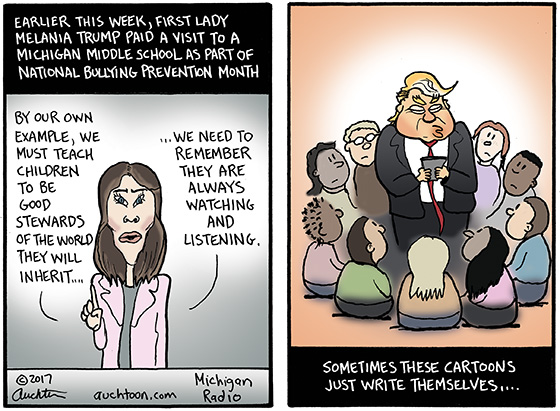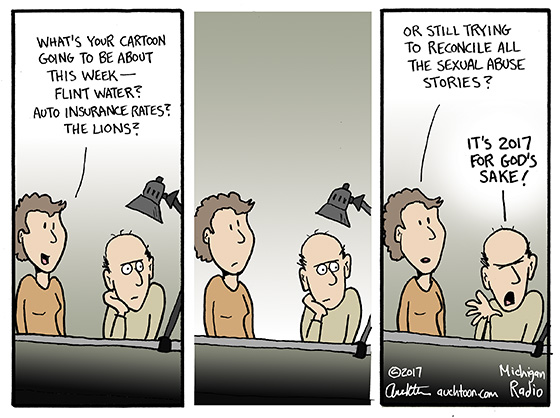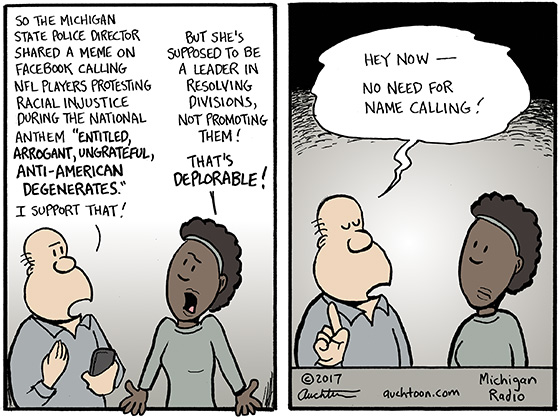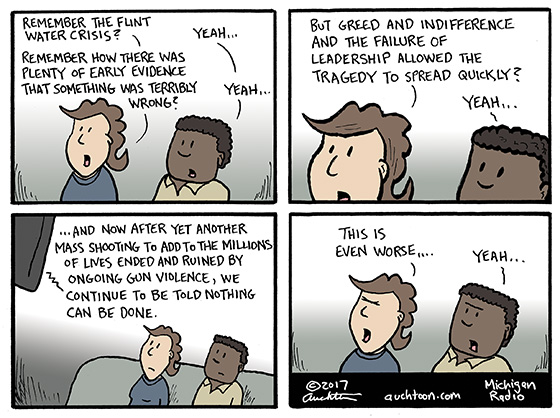Bullying Prevention Visit to Michigan
Okay, let’s get this out of the way. The first five reasons that come to mind demonstrating why the President is the opposite of what his wife is advocating:
- The nicknames he gives to “beliddle” people who disagree with him — a classic bully technique.
- The way he flatters people when they’re together at a photo op, but attacks them when they are at a safe distance. Also, classic bully.
- The special abuse he saves for women who challenge his authority (especially women of color).
- His appropriating the pride that Americans feel for our military, when he ducked out of service by leveraging his wealth and privilege.
- Regaling a convention of Boy Scouts with wistful tales of yachts and orgies.
If you are so inclined, feel free to mince, dice, and misdirect. Go ahead and deny. Get your White House Press Secretary on. But we all know the truth, and I’m pretty sure the first lady knows it too.
Which is maybe the most unfortunate thing here.
The message Mrs. Trump delivered on Monday to the 6th graders at Orchard Lake Middle School in West Bloomfield is so, so important: inclusion, integrity, kindness, leadership. I’m willing to believe the First Lady is sincere. It’s the persistently contrary behavior of her husband that creates a mixed message.
But let’s not despair that the children are confused. Middle schoolers are smarter than adults often assume. They are experts at recognizing authenticity. All the more reason that we, as adults, should hold ourselves to the standards Mrs. Trump is promoting, and expect our elected officials to do the same.






